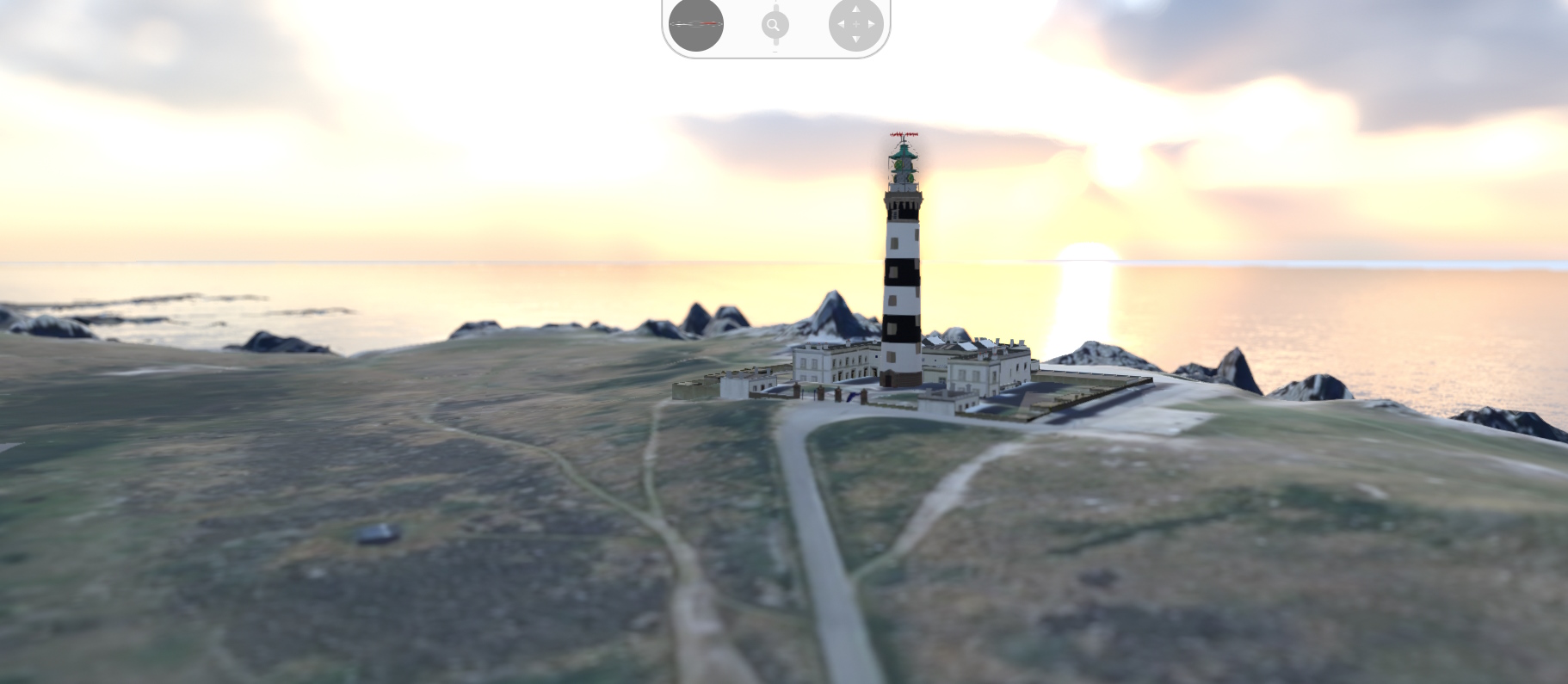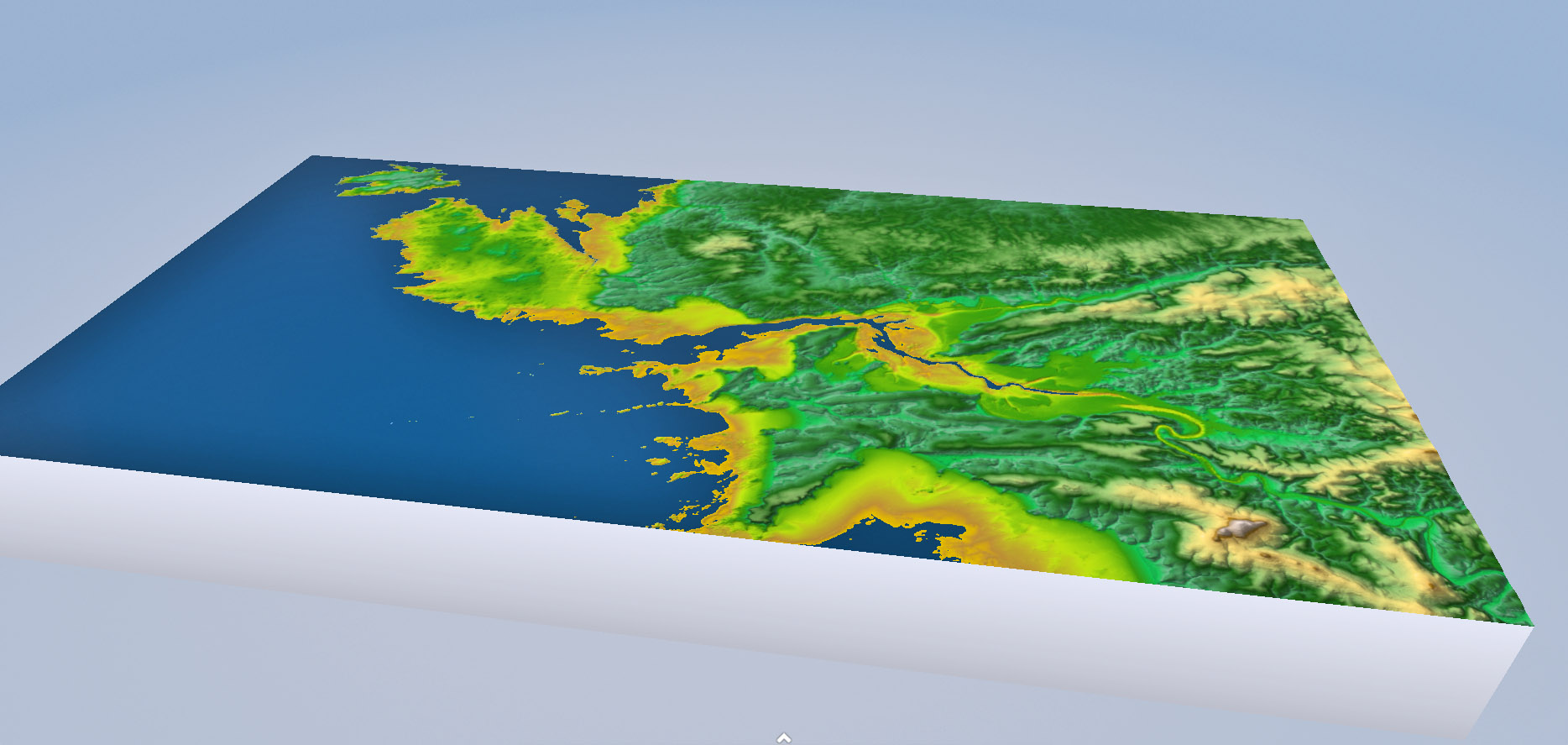Introducing ImmerSea RADE at Science Festival
ISblue and ImmerSea LAB, with La Fondation Dassault Systèmes, present ImmerSea RADE, an immersive educational project based on the 3D modeling of the evolution of the Brest harbor.
Celebrating ocean sciences
For 30 years now, the Fête de la science (Science Festival) has been celebrating science, technology and innovation throughout France. Organized by the French Ministry of Higher Education, Research and Innovation, this popular event is open to all and contributes to the sharing of knowledge between scientists and the general public.
As part of this year's festival, ISblue and ImmerSea LAB, with La Fondation Dassault Systèmes, are presenting an educational 3D modeling project of the Brest harbor: the "ImmerSea RADE". This virtual tour of the harbor evolution over the past 12,000 years will be presented to schoolchildren on Thursday October 5 and Friday October 6 at Océanopolis, a unique ocean discovery park located in Brest, France.

A scientific journey into the evolution of Brest harbor
Supported by La Fondation Dassault Systèmes, the "ImmerSea RADE" project has been carried out by 25 students from ISblue, a university research school dedicated to marine sciences and technologies, in the ImmerSea LAB, an experimental space dedicated to marine and coastal sciences. The experiment involved 3D modeling and the production of a scenario for a virtual, interactive tour of the Brest harbor as far as the Ouessant island, tracing the evolution of the landscape and sea over the last 12,000 years.
This virtual tour gives visitors an insight into the many changes that the Brest harbor has undergone. They will see that Brest was not always located on the coast, and that it was once possible to cross from Brest to Crozon on foot. Thanks to this experience, the public will be able to measure the impact of human activity on the acceleration of rising water levels, and to project themselves into scenarios for the evolution of the bay.

3D allows us to better illustrate the major changes in the Brest harbor and to project ourselves as if we were there.
An innovative immersive learning and research environment
Since the start of the project, ISblue marine and coastal science students have made progress in mastering professional technological tools and have gained an understanding of the geographical, biological and geological features of the harbor.
The virtual tour, built on the basis of scientific data integrated into the 3D modeling tools with the technical support of volunteer experts from La Fondation Dassault Systèmes, is part of the ImmerSea LAB, a wider educational program aimed at enabling students and researchers to immerse themselves in virtual environments to understand and solve a wide range of marine and coastal issues.
Through the financial and skills support provided, La Fondation Dassault Systèmes contributes to the transformation of education and research. Such a program stimulates creativity and fosters innovation. Students and researchers can use virtual worlds to test the real thing and design their own projects.
3D allows us to test hypotheses, find solutions and thus improve reality. With this project, we wanted to make a further commitment to raising awareness of major ocean issues, using virtual universes. The use of 3D in this context can also be an opportunity to develop new skills and create vocations for scientific careers.
About ISblue
The tip of Brittany is home to the largest concentration of marine science and technology researchers in France. In this favorable environment, a prestigious partnership between two universities (UBO and UBS), three national research organizations (CNRS, Ifremer and IRD), and four engineering schools (IMT-Atlantique, ENSTA Bretagne, ENIB, and l'Ecole Navale) led to the creation of ISblue, the only university research school dedicated to marine sciences and technologies, selected and funded for 10 years within the Investments for the Future and France 2030 framework. Drawing on research laboratories that tackle all aspects of marine science and technology, ISblue aims to train new generation of researchers, experts and engineers to address the multiple challenges facing the ocean and coastal areas.
About La Fondation Dassault Systèmes
Since 2015, La Fondation Dassault Systèmes has been supporting the transformation of education, research, and the way we study cultural heritage. Beyond new skills, constructive collaborations, and an aspiration to reimagine and support a more sustainable world, the aim is above all to instill a spark around science and technologies for future generations. At the core of knowledge transmission, virtual worlds enable to better comprehend the world, and to push back the boundaries of understanding, thanks to stakeholders’ active commitment.
As a catalyst for know-how and passion, La Fondation Dassault Systèmes values involvement and sharing spirit, notably through skills sponsorship, to place human interactions at the heart of learning.
It operates through three foundations in Europe, India and the United States.
